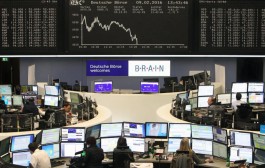The European Union is examining the possibility of extending the emergency price cap on gas amid fears that conflict in the Middle East and sabotage of the Baltic pipeline could lead to prices rising again this winter.
In December last year, European energy ministers agreed to set the gas ceiling at 180 euros per megawatt hour, and the decision entered into force in February.
According to a presentation sent to EU diplomats and seen by the Financial Times, the European Commission announced that there is no indication of negative effects since the mechanism came into force and that gas prices are currently about 90% lower than last year's levels.
The price ceiling was introduced after many weeks of heated discussions among European Union members, after Germany and Austria initially objected, as they saw that the proposal would distort the market and exacerbate the supply crisis.
But according to the document, the ceiling did not affect gas imports to the European Union.
Diplomats and European Union officials confirmed to the Financial Times that despite the decline in energy prices, and the European Union's gas stocks reaching record high levels, supplies may be affected this winter due to the war between Israel and Hamas and possible acts of sabotage of the gas infrastructure.
An EU diplomat said: We do not know what will happen this year. We have the situation in Israel and we do not know how it will affect imports from the Middle East.
Gas prices reached 300 euros per megawatt at the height of the energy crisis in Europe, which resulted from Russia cutting off supplies to the Old Continent following the start of the Russian-Ukrainian war, but it did not continue for an extended period of time.
The document sent to the European Commission at the weekend asked for an extension of a separate emergency law introduced during the crisis that allowed member states to speed up licensing for wind farms.






































